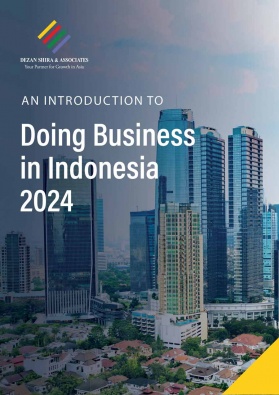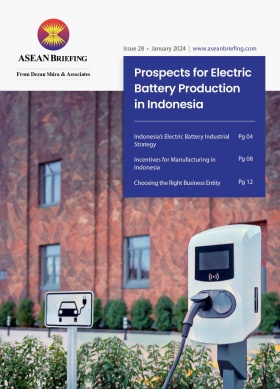Regulatory Shifts in Indonesia’s Mining Sector: Empowering Local Stakeholders
Indonesia’s government has introduced regulatory changes under Government Regulation 25 of 2024 (GR 25/2024) that will significantly impact the mining sector. These reforms are designed to streamline bureaucracy, enhance mining practices, and bolster the national downstream program within the industry.
The Indonesian mining sector plays a critical role in the country’s economy, contributing significantly to its GDP. Indonesia is one of the world’s leading producers of a variety of minerals, including coal, nickel, tin, and copper, which are vital to both domestic industries and international markets. The sector contributed 11.9 percent of GDP in 2023, a significant growth from just over 7 percent in 2016.
Indonesia is one of the world’s largest producers of coal, tin, nickel, cobalt, tin, copper, and gold. To add value to the sector and increase state revenues, the country has implemented a down-streaming policy that focuses on processing raw minerals domestically rather than exporting them in unrefined form.
For instance, the government imposed a ban on the export of nickel ores in 2014 and introduced a requirement for producers to purify the raw nickel in Indonesia before export. Foreign investors, primarily from China, began investing in the Indonesian nickel supply chain, particularly in the building of smelters. Indonesia’s exports of processed nickel reached an estimated US$30 billion in 2022, a huge increase from just US$1 billion in 2015. The country is expected to account for half the world’s increase in nickel production by 2025.
Although 70 percent of all nickel usage goes towards the stainless-steel sector, there is increasing demand for the manufacture of electric vehicle (EV) batteries. This demand from electric batteries is expected to account for one-third of total nickel demand by 2030, particularly as countries worldwide look to lower carbon emissions and meet their net-zero targets.
What are the key changes under GR 25/2024?
Removal of the requirement to submit annual mining and budget plans
Previously, mining companies in Indonesia had to submit an annual mining and budget plan (RKAB) to the Ministry of Energy and Mineral Resources. This plan is mandatory, and the document must outline the business strategy, technical specifications, environmental considerations, and operational plans for a company’s mining activities.
Under GR 25/2024, the annual requirement for submission has been removed and now the validity for the RKAB is different for each phase of operations – one year for exploration and three years for post-production.
Mining licenses for subsidiaries of state-owned enterprises
State-owned enterprises that hold an IUPK (Production Operation Mining Business License) or an IUP (Exploration Mining Business License in the production-operation phase can extend their licenses for 10 years. This extension now applies to subsidiaries of state-owned enterprises under GR 25/2024.
New legal certainties for IUPK production-operation license holders
Before the enactment of GR 25/2024, the IUPK production-operation license was valid until its term expired.
However, GR 25/2024 now specifies that an IUPK for Production Operation is officially recognized as an IUPK for the Continuation of an operation contract or agreement. In practical terms, this means that when a company holds an IUPK for Production Operation, it is not just a standard license but is also considered a continuation of any existing operational contract or agreement. This clarification likely streamlines the legal framework, ensuring that ongoing operations under an existing contract can smoothly transition into the new licensing framework without requiring a separate process or additional approvals.
However, the company must fulfill the following criteria to be eligible:
- Has its domestic processing/refining facilities;
- Has the reserves to meet the operational needs of the processing/refining facilities;
- At least 51 percent of the shares in the company are owned by Indonesian participants;
- Has made a formal agreement with an SOE to sell a portion of its shares. Specifically, under the sale and purchase agreement, the SOE is committed to acquiring at least 10 percent of the company’s shares. the SOE will acquire these shares without the value or percentage being reduced by any future issuance of additional shares or equity; and
- Committed to new investments in the form of exploration activities and increasing the capacity of its processing/refining facilities.
Granting mining rights to religious organizations
Licenses for Special Mining Business License Areas can now be offered to businesses owned by religious organizations in Indonesia.
GR 25/2024 specifies that any transfer of an IUPK or shares owned by religious organizations in business entities must receive approval from the Ministry of Energy and Mineral Resources (MEMR). This means the license or ownership cannot be transferred to another party without the MEMR’s consent, ensuring regulatory oversight and control over who holds these licenses and shares.
The regulation prohibits business entities owned by religious organizations from entering partnerships, joint ventures, or other forms of cooperation with former holders of PKP2B (Coal Contract of Work) licenses or their affiliates. PKP2B holders were previous licensees under a different regulatory framework for coal mining. This prohibition aims to prevent any continued influence or involvement of previous operators, ensuring that new or current operators adhere to updated regulatory standards and practices
About Us
ASEAN Briefing is produced by Dezan Shira & Associates. The firm assists foreign investors throughout Asia and maintains offices throughout ASEAN, including in Singapore, Hanoi, Ho Chi Minh City, and Da Nang in Vietnam, in addition to Jakarta, in Indonesia. We also have partner firms in Malaysia, the Philippines, and Thailand as well as our practices in China and India. Please contact us at asean@dezshira.com or visit our website at www.dezshira.com.







